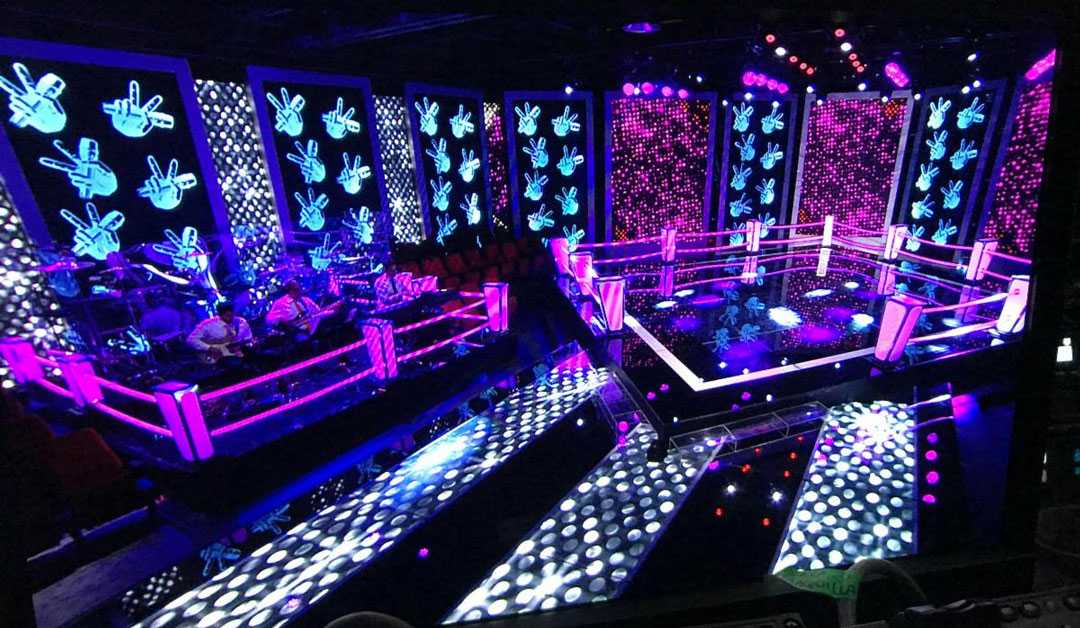Hippotizer drives The Voice Kids Colombia
- Details

For the latest Colombian kids’ version of the show, video designer Alvaro Fuentes, from Bogotá-based visual design company Visual in Motion, drew on his collection of Green Hippo gear to achieve the ambitious looks required by the production team. Fuentes’s Hippotizer armoury is headed up by a Hippotizer Karst, which alongside a family of Hippotizer Media Servers drove the content for Season 4.
“Because of the complex LED screens setup on stage, which were in different positions, sizes and resolutions, we needed a tool to map the content onto the surfaces,” says Fuentes. “That’s where Hippotizer is a huge help - VideoMapper is the perfect tool, making it really easy to make everything fit and synchronise.
“The other tool that we value the most is the DMX component, since we need to synchronize the video content and also the lighting fixtures, we wrap it all together in a lighting desk that controls everything via Art-Net.”
For The Voice Kids, Fuentes and his team positioned LED screens on every wall of the set. All were different sizes, including tall strips of 1m x 4.5m to contrast others at 3m x 4.5m. Between these screens, 3m x 4m boxes with the The Voice logo were displayed, illuminated by LED nodes mapped and controlled by the programmer. On the main stage floor, they placed LED strips of 6m x 0.5m right in front of every TV judge featured on the show.
The show is divided into stages, from the audition process to the singing battles and on to the finals. The visual content is ramped up as the stages progress, from library content at the outset to bespoke visuals created by Fuentes and his team for the finals, focusing on fast-paced animation and ‘festive’ colour blasts.
“To control everything, we used eight outputs of different resolutions, depending of the size and the pitch of the screens,” Fuentes explains. “Everything was mapped in 3D renders before the project began, so we could see what the visuals would look like and approve it before we got onto the set. Hippotizer made this simple - we always know we are in good hands.”
















